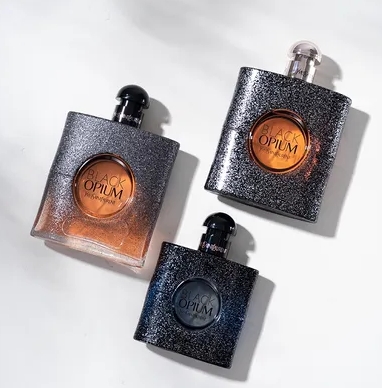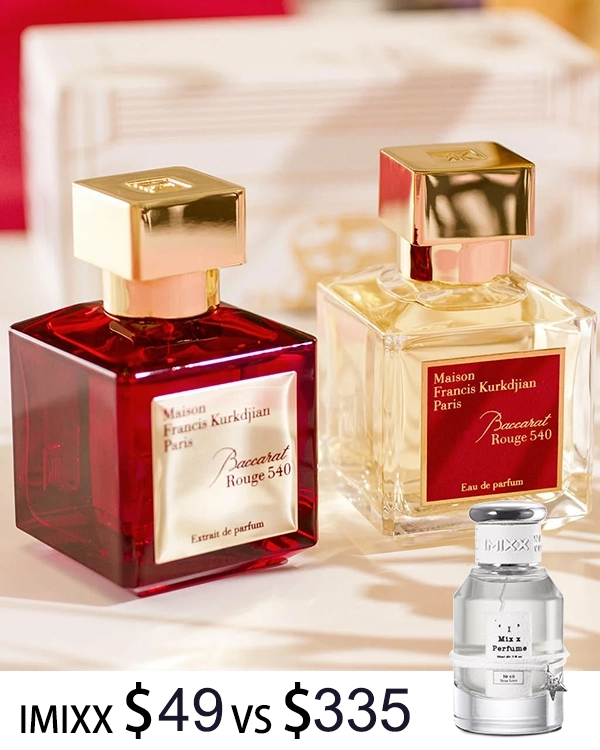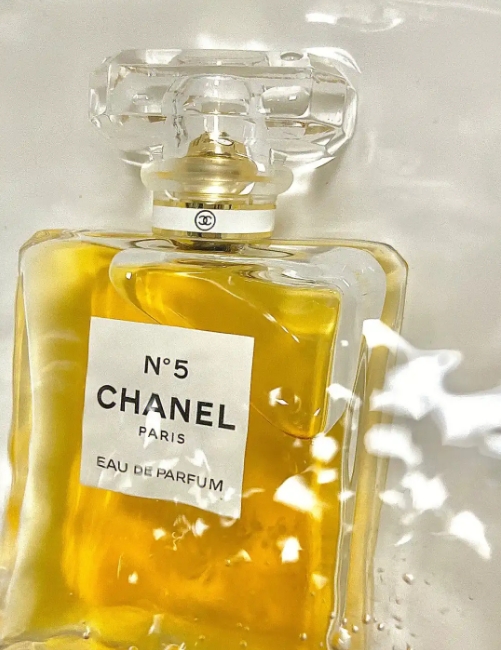What’s the Difference Between Parfum and Eau de Parfum? When it comes to choosing the right fragrance for yourself, one of the most common questions asked is, What’s the difference between Parfum and Eau de Parfum? While both fall under the same category of fragrances, they differ in several ways, including their concentration, longevity, and intensity. Understanding these differences can help you make an informed decision on which fragrance to choose, whether for yourself or as a gift. In this comprehensive guide, we’ll break down the differences between Parfum and Eau de Parfum, including their compositions, longevity, and much more. We will also discuss how IMIXX Perfumes replicates luxury fragrances with remarkable accuracy and high quality, providing you with affordable alternatives without compromising on the luxury experience.

Table of Contents
What is Parfum?
What is Eau de Parfum?
Parfum vs. Eau de Parfum: Key Differences
Why is Parfum More Expensive Than Eau de Parfum?
Can You Distinguish Between Parfum and Eau de Parfum by Smell Alone?
What’s the Longevity Difference Between Parfum and Eau de Parfum?
How Should Parfum and Eau de Parfum Be Applied Differently?
FAQ: Parfum and Eau de Parfum – What You Need to Know
Best Perfume Alternatives at IMIXX
Conclusion
What is Parfum?
Parfum, also known as perfume extract, is the most concentrated form of fragrance. Typically, it contains between 20% to 30% of fragrance oils, making it the richest and most intense type of fragrance. Due to its higher concentration, parfum tends to have a more powerful scent and can last up to 8 hours or more.
Parfum is usually applied sparingly because of its intensity, and it is considered ideal for evening wear or special occasions. The scent is deep, luxurious, and complex, making it a popular choice for those who prefer long-lasting, bold fragrances.
What is Eau de Parfum?
Eau de Parfum (EDP) is a lighter version of parfum, with a fragrance concentration typically ranging between 15% to 20%. While Eau de Parfum is not as potent as parfum, it is still quite strong and can last between 4 to 6 hours. EDP is generally a great option for daily wear because of its balance of strength and subtlety.
Eau de Parfum offers a more approachable option for those who love fragrances but do not want something too overpowering. It is also more versatile for different occasions, making it a great addition to your fragrance collection.
Parfum vs. Eau de Parfum: Key Differences
| Feature | Parfum | Eau de Parfum |
|---|---|---|
| Fragrance Concentration | 20% to 30% fragrance oils | 15% to 20% fragrance oils |
| Longevity | 8+ hours | 4 to 6 hours |
| Sillage (Scent Trail) | Stronger and more noticeable | Moderate to strong |
| Ideal for | Evening, special occasions | Daytime, casual wear |
| Price | Higher, luxury pricing | More affordable than parfum |
Why is Parfum More Expensive Than Eau de Parfum?
The higher cost of parfum compared to Eau de Parfum is due to several factors:
Higher Concentration of Fragrance Oils: Parfum contains a higher percentage of fragrance oils, which are more expensive to produce. The ingredients used in parfum are typically rarer and more costly than those in Eau de Parfum.
Longer-lasting Formula: Since parfum lasts longer, the price reflects its longevity. You’re essentially paying for a fragrance that will linger throughout the day (or night), providing a luxurious scent experience.
Luxury Branding: Parfum is often positioned as a more luxurious product by high-end fragrance brands, and the price is reflective of its exclusivity and premium status.
Can You Distinguish Between Parfum and Eau de Parfum by Smell Alone?
Yes, you can generally tell the difference between parfum and Eau de Parfum by their smell. Parfum tends to be more intense, deeper, and richer due to its higher concentration of fragrance oils. It is also more complex and lasts longer on the skin. On the other hand, Eau de Parfum has a lighter, fresher scent, with the fragrance being more subtle and less pronounced over time.
What’s the Longevity Difference Between Parfum and Eau de Parfum?
The longevity of a fragrance depends largely on its concentration of fragrance oils. Parfum, with its higher concentration of oils, can last up to 8 hours or more, making it ideal for occasions where you don’t want to reapply your fragrance. Eau de Parfum, with a lower concentration of fragrance oils, typically lasts 4 to 6 hours. This makes Eau de Parfum more suitable for daily wear when you may want to refresh your fragrance throughout the day.
How Should Parfum and Eau de Parfum Be Applied Differently?
Parfum is potent and only requires a small amount to last for hours. Apply it to pulse points like your wrists, behind your ears, and the inside of your elbows. These areas help to amplify the scent. Avoid rubbing your wrists together after application, as this can break down the fragrance.
Eau de Parfum can be applied more liberally. Spray it on your neck, chest, and wrists. Since it’s lighter than parfum, it’s perfect for daily wear and can be applied throughout the day for a refreshed scent.

FAQ: Parfum and Eau de Parfum – What You Need to Know
1. What is the difference between Parfum and Eau de Parfum in terms of fragrance concentration?
Parfum typically contains between 20% to 30% fragrance oils, making it the most concentrated form of fragrance available. This high concentration results in a richer and more intense scent. Eau de Parfum, on the other hand, contains 15% to 20% fragrance oils, which means it has a lighter fragrance concentration. While still potent, Eau de Parfum is less intense than Parfum, offering a more subtle aroma for everyday wear.
2. Why is Parfum more expensive than Eau de Parfum?
The main reason for the higher price of Parfum is its higher concentration of fragrance oils, which are more expensive to produce. Additionally, Parfum often contains rarer, more luxurious ingredients that contribute to its price. The production process for Parfum is also more complex and involves higher quality materials, making it a premium product compared to Eau de Parfum.
3. How long does Parfum last compared to Eau de Parfum?
Parfum generally lasts much longer than Eau de Parfum due to its higher fragrance oil concentration. Parfum can last anywhere from 8 hours to an entire day, depending on your skin type and environmental factors. Eau de Parfum, with its lighter concentration, typically lasts 4 to 6 hours, making it suitable for everyday wear but requiring more frequent reapplications.
4. Can Parfum and Eau de Parfum be layered for a unique scent?
Yes, you can layer Parfum and Eau de Parfum for a unique and customized scent. For instance, you might use a lighter Eau de Parfum as a base and layer it with a more intense Parfum on top for added depth and longevity. However, it’s important to choose complementary fragrances to avoid overwhelming your senses.
5. Is one more suitable for daytime wear: Parfum or Eau de Parfum?
Eau de Parfum is generally more suitable for daytime wear due to its lighter, less overpowering scent. It provides a fresh fragrance without being too intense. Parfum, on the other hand, is better suited for evening wear or special occasions because of its potent, bold fragrance that may be too strong for daytime environments.
6. Are there any differences in how Parfum and Eau de Parfum are applied?
Parfum is highly concentrated, so only a small amount is needed. Apply it sparingly to pulse points, such as your wrists, behind your ears, and at the nape of your neck. Eau de Parfum, being lighter, can be sprayed more liberally on the body, focusing on areas like your neck, chest, and wrists. Make sure to avoid rubbing your wrists together after applying any fragrance, as this can alter the scent.
7. What are the main ingredients in Parfum and Eau de Parfum?
Both Parfum and Eau de Parfum share similar ingredients, such as top, heart, and base notes. The difference lies in the concentration of these ingredients. Parfum tends to have more complex and concentrated top, middle, and base notes, while Eau de Parfum’s notes are more diluted. Common ingredients in both include floral, woody, citrus, and musky notes, but the proportions of these ingredients vary depending on the fragrance.
8. Can Parfum and Eau de Parfum cause skin irritation?
Both Parfum and Eau de Parfum can cause skin irritation, especially for those with sensitive skin, due to the alcohol and fragrance oils. However, Parfum may be slightly more irritating since it has a higher concentration of fragrance oils. If you have sensitive skin, it’s recommended to do a patch test before applying fragrance to your entire body. Alternatively, look for products with natural or hypoallergenic ingredients.
9. Are there fragrance options that combine the best of Parfum and Eau de Parfum?
Yes, there are fragrance hybrids available that combine the qualities of both Parfum and Eau de Parfum. These fragrances are designed to provide a balanced intensity, offering a rich scent with moderate longevity. They are often marketed as a versatile option for people who want the best of both worlds: a fragrance that lasts longer than Eau de Parfum but isn’t as overpowering as Parfum.
10. What should I consider when choosing between Parfum and Eau de Parfum?
When choosing between Parfum and Eau de Parfum, consider your personal preferences, occasion, and budget. Parfum is ideal for those who enjoy deep, long-lasting fragrances and are willing to invest in a high-end product. Eau de Parfum, being more affordable and suitable for daily use, is a great choice for those who prefer a lighter scent with good longevity. Additionally, think about the time of day and type of event: Parfum for evenings and special occasions, and Eau de Parfum for everyday use.
Best Perfume Alternatives at IMIXX
IMIXX Perfumes offers a wide range of affordable, high-quality fragrance dupes that replicate luxury scents like those from Tom Ford, Le Labo, Armani, Dolce & Gabbana, and more. If you’re interested in exploring these luxury-inspired perfumes, check out the collection at IMIXX Perfumes.
IMIXX Perfumes excels at crafting fragrance dupes that maintain 99.98% similarity to their luxury counterparts. With the use of premium ingredients sourced from the world’s finest perfume regions, IMIXX ensures the scents are as close to the original as possible. Whether you’re seeking a fragrance that replicates Creed, YSL, Maison Francis Kurkdjian, or Chanel, IMIXX provides high-quality alternatives at a fraction of the price.

Conclusion
Understanding the difference between Parfum and Eau de Parfum is essential for making the right choice for your fragrance needs. Both have their unique qualities, and knowing how they differ in concentration, longevity, and application can help you select the best option for any occasion. Whether you’re looking for a luxurious scent for a special evening or a light fragrance for daily wear, IMIXX Perfumes offers high-quality, affordable alternatives to your favorite designer fragrances.
For those seeking to explore What’s the Difference Between Parfum and Eau de Parfum in greater detail, IMIXX Perfumes has the perfect selection of dupes that bring the luxury experience right to your doorstep. Discover your signature scent today!

